My 2024 Mental Health Crisis
Mental Illness: The Gift that Keeps on Giving (warning: the following piece mentions the topic of suicide)
As some of you perhaps noticed, it’s been a while since you have heard from me. Over three months to be more precise. To make a long story short, what happened in that time is that I was completely knocked on my butt by what I can only describe as a wickedly debilitating episode of clinical depression.
First, a little very personal mental health history. When the year began way back in January, I was still in the relatively pleasurable and emotionally scintillating throes of my first (that I can verify) bipolar hypomanic episode. Hypomania is the energetic, ecstatic, and reckless flip side to depression in the bipolar II disorder’s two major emotional states. I had recently been diagnosed as suffering from bipolar illness by my therapist and psychiatrist, and was thinking “well gee, this is pretty great!”. I was feeling inspired, doing a lot of photography, writing a ton, and was barely sleeping. What could go wrong? Ok, I was alienating friends, colleagues, my family, my girlfriend, and pretty much anyone I had a close interaction with. I was also in in danger of truly going off the deep end into full-blown psychotic mania. So, wisely my psychiatrist prescribed an industrial-strength medication that drastically slowed me down and forced me to sleep. All well and good.
What I was not prepared for, however, was the tsunami of a clinical depression that was gathering strength as my hypomania gradually subsided. This is how the bipolar illness works. A hypomanic (or manic) episode is invariably followed by a proportional level of clinical depression.
Now, let me give you a little more personal mental health history. My maternal grandmother suffered terribly (or so I’m told) from bipolar illness (at the time called manic depression), and I suspect my two uncles did as well. I have struggled with depression all of my life, dating back to childhood. I have been on medication for depression for the past twenty-five years. So this is not my first rodeo. But what I got hit with this time was of a completely different magnitude.
It began innocently enough. I remember reporting to my therapist that I was beginning to feel twinges of melancholy sometime in March. She said that could be the beginning of the expected depressive episode that would naturally follow a hypomanic episode. Over the next few weeks, these twinges gathered strength and force, so that by mid-April I barely knew what had hit me. By then I was feeling the worst of clinical depression’s most painful symptoms:
a crippling feeling of despair to the point of suicidal ideation,
a complete loss of confidence in any and all of my abilities,
extreme indecisiveness
anhedonia—the inability to feel or appreciate any form of pleasure
pervasive brain fog—my brain functioned like it was immersed in molasses.
Now, as for what event or events may have triggered this depression (aside from the previous episode of hypomania), I attributed it in large part to a reasonably stressful upcoming professional opportunity: I would be exhibiting several photographs at a prestigious international photography fair: “The Photography Show Presented by AIPAD” in New York in late April.
Still, I thought if I could just struggle through the opening night of the art fair, my symptoms would somehow naturally “evaporate” and all would be well. But this was not what happened. I did manage to (just barely) make it through the successful installation of my photographs (thank God!) and the VIP Gala preview opening of the first day. The following day, however, the first official day of the art fair, I awoke in my bed gripped by what I can only describe as an acute depressive suicidal panic attack. There was no way I could bring myself to go anywhere near the fair. I was scared for my own safety. I put out an SOS to my brother and sister, who thankfully live not far from me, and they came right over to my apartment.
A brief aside: in Darkness Visible, author William Styron’s famous memoir about his own depression and recovery, he spoke glowingly about the efficacy of his seven-week stay in a psychiatric facility. So as far as I was concerned, if a stay on a psychiatric ward was good enough for William Styron, it was damn well good enough for me! So that was what I told my siblings I felt I needed.
So off the three of us went, walking the ten blocks from my apartment to the Weill Cornell Psychiatric Emergency Room, and within a few hours I had been assigned a bed on the fifth floor of the nearby Gracie Square Psychiatric Hospital, itself just a few blocks from my apartment. I stayed there for a week, which I was told was the minimum amount of time the medical team would need to tweak and refine my medications to begin to bring my symptoms under control.
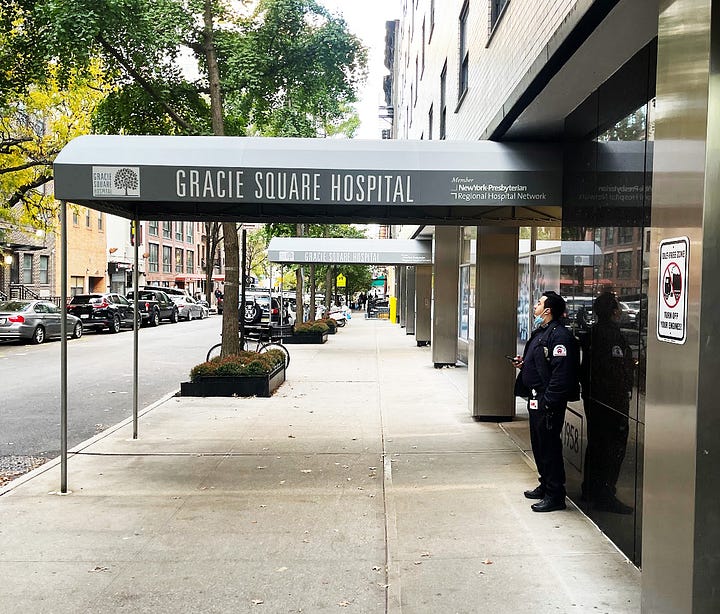
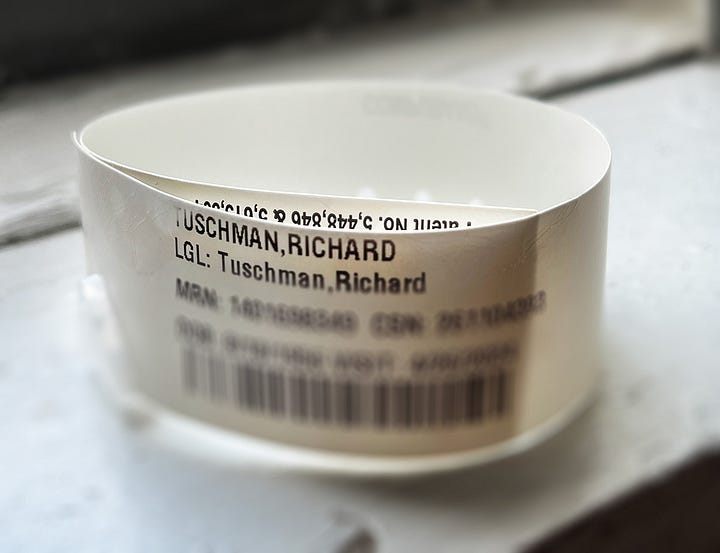
While I do not regret my decision to check myself in to the hospital, my stay turned out to be not what I expected. I suppose I had envisioned the ward to be more like a traditional hospital, with at least modest attempts at comfort and an aesthetically appealing environment. But the overriding purpose of a psychiatric ward is to keep the residents from physically hurting themselves and each other, and this is reflected in every environmental choice. That means the residents are allowed no belts, no strings, no shoelaces, no spiral notebooks, no zippers, no regular pens or pencils, and so on. Even the tooth brushes are about three inches long, lest they be used as a weapon. And of course, absolutely no dental floss. And the entire floor is, of course, on lock-down.
I probably should have stayed on the ward longer than the prescribed week, in order to have my medications and treatment further refined, but unlike the majority of my fellow residents, my stay was voluntary. This meant I could leave whenever I wanted, and after my first couple of days it became clear to me a week was going to be all I could tolerate. For while the environment is designed to keep the residents physically safe, almost every other aspect seemed ironically to be designed to keep the residents permanently psychologically depressed: virtually no fresh air (only once a day for thirty minutes if one has “privileges”), a perpetually blaring TV in the communal day room, almost a complete lack of privacy, an institutional diet heavy on sugar, salt and fat, and all the concomitant dreariness one would expect on a psychiatric ward. This is not, in any way, to criticize the staff of Gracie Square Hospital. I found them all to be (well, almost all) professional, caring, courteous, and empathic. Even in that relatively short week, what primarily kept me from going completely off the rails were the multiple daily visits from my amazing support group of family and friends. Sadly, in the week that I was there, the majority of residents received no visitors at all, none.
After a week in residence, I discharged myself into the care of my regular therapist and psychiatrist. It was my hope that at this point, under their care, my recovery would be relatively swift and complete (or nearly so). But often that is not how recovery from a bipolar depressive episode works. At least not in my case. So it has now been three months since I left the hospital, and I am still struggling with depression and anxiety, while my medications continue to be tweaked, refined, and monitored with frequent blood tests. At this point I am admittedly frustrated and discouraged. I just want to feel better and I want my life back. I’m finding it incredibly difficult to be patient.
To be sure, I have made progress. The original crippling psychic pain that greeted me every morning has thankfully abated, along with the accompanying suicidal ideation. I still struggle with anhedonia, and I’m still waiting for the return of almost any semblance of creative energy, or any form of energy at all for that matter. My level of self-confidence and emotional resilience right now sit a peg or two above rock bottom. My brain fog has improved, though I still get overwhelmed easily. I did manage to write this newsletter, which I am taking as a big win. And I am still planning on definitely being back in the saddle by November to teach the Los Angeles Center of Photography workshop below.
Thanks for your support and patience, I look forward to keeping you posted on future my future progress and developments.
JOIN US IN LOS ANGELES IN NOVEMBER—
Studio Lighting and Photomontage
Los Angeles Center of Photography
November 8-10, 2024
Three session in-person intensive workshop
Click here for info and to register
The first two days will be spent photographing models in the studio with strobe lighting. We will explore the fundamentals of how light reveals form, and thus creates mood. We learn how to create both hard and soft light using various modifiers and techniques, taking into account shape, direction, and distance. We will pay special attention to accurately matching the light in pre-existing images.
Day three will be spent working in Photoshop, where we will integrate our photographs of the models into our own background images. We will learn techniques for selection and masking, while properly integrating aspects such as color, luminance, point of view, depth of field, and grain with the underlying image.
Unleash your imagination as you merge multiple images seamlessly, creating stunning photo montages that tell stories and evoke emotion. From basic principles to sophisticated strategies, this course equips you with the skills to illuminate your photography with brilliance and finesse.


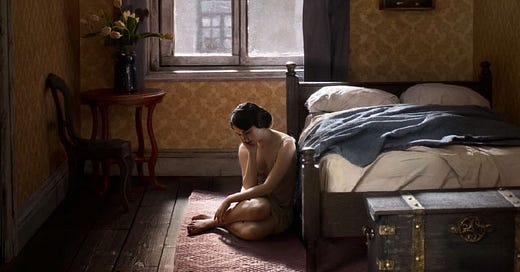




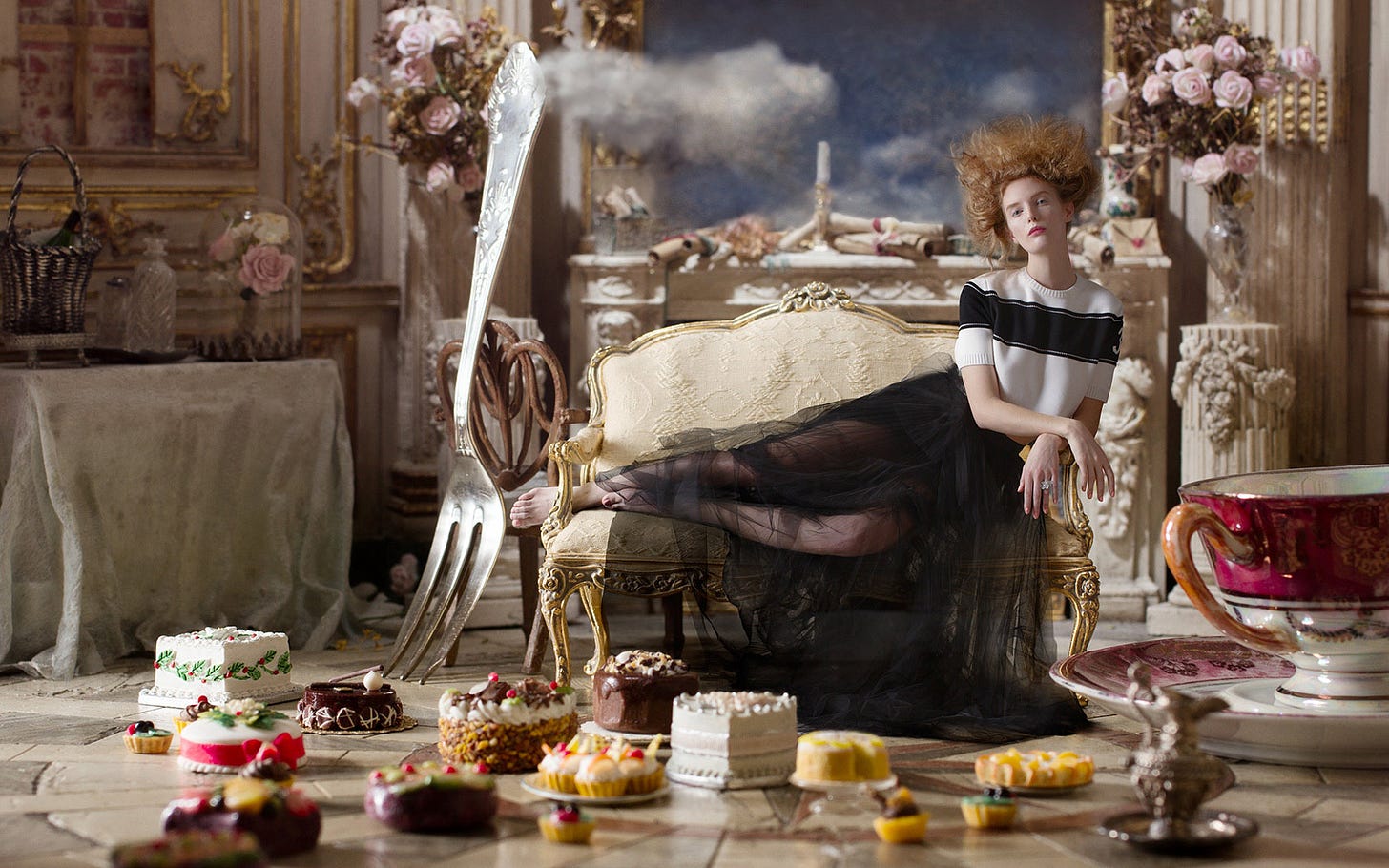
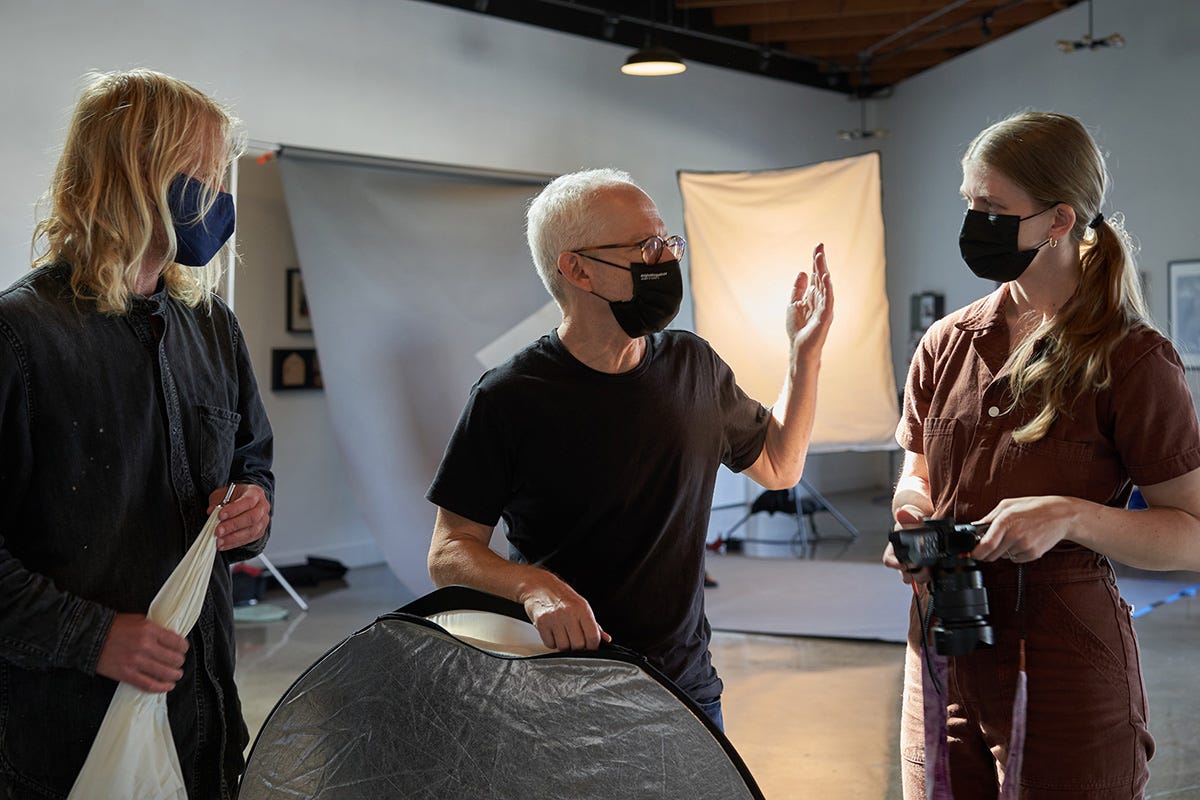
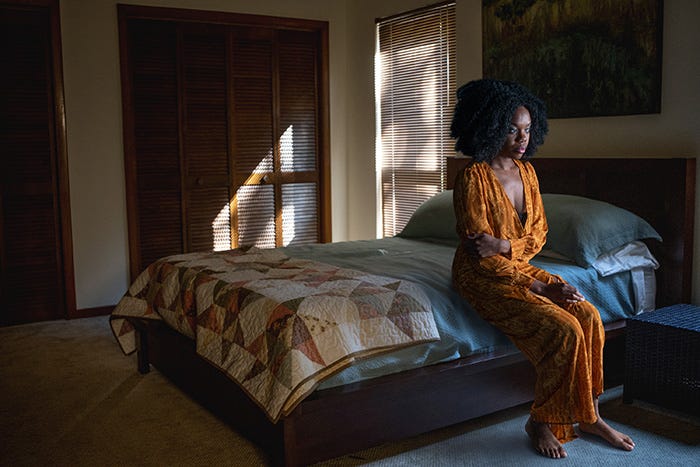
I’m so sorry for this deep depression and hope the medications can be tweaked effectively. I hope you can access the beautiful parts of yourself that emanate in your stunning and powerful work. 🕊️
Dear Richard: As a fellow sufferer of mental illness, I thank you for your courage and deep display of vulnerability. I think it is so important to openly discuss mental health/illness. Those of us who have suffered from it need to know we’re not alone. We can build strength, community and needed awareness about this subject that is still not talked about nearly enough. I wish you the best during your life’s journey.